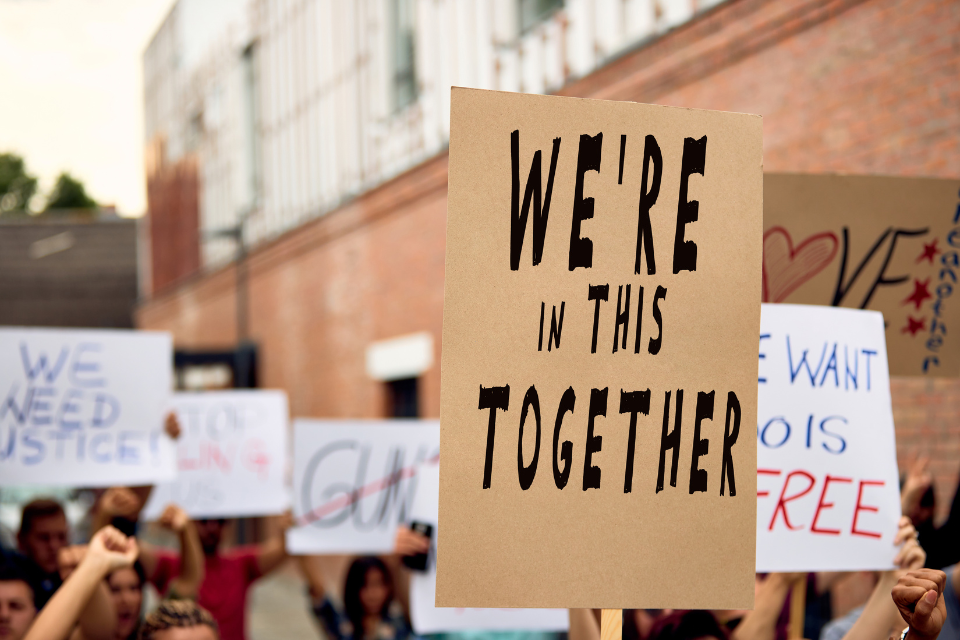In this month’s Joyful Journey, Bishop David Alan Bard reminds us that the gospel is about heart change, which is an important part of tackling issues like racism and violence in our society.
BISHOP DAVID ALAN BARD
Michigan Conference
February is Black History Month, and as we begin, we are mourning the death of another Black man killed interacting with law enforcement. We grieve the death of Tyre Nichols in Memphis and are appalled by his treatment by Memphis police officers, all of whom have been criminally charged now. The potential influence of race in this situation is complicated by the fact that all the officers were also Black. The deadly encounter continues to raise questions about policing in our country. Law enforcement is a difficult and dangerous profession, and those engaged in it deserve our gratitude for doing it well much of the time. At the same time, we need to keep asking questions about the culture of policing and the training of law enforcement officers.
Law enforcement work is difficult, and I cannot but think it has been made more difficult by the overall rise in violence, particularly gun violence, in our country. How might the ubiquity of guns affect persons wanting to enforce the law? How much does one’s anxiety rise because one may never know whether the person they encounter is armed, perhaps significantly so? Since the beginning of the new year, there have been about 40 mass shooting incidents in the United States, where at least four persons were injured. Over 70 people have died in these incidents. Gun violence is now the number one killer of children and youth in our country. While no set of laws will completely rid our country of gun violence, among which I include accidental shootings and suicides, it is long past time to consider reasonable gun safety measures that could make a difference. For example, universal background checks could prevent some people who should not have guns from obtaining them. Safe storage laws could reduce the number of “impulsive” gun incidents that occur, including suicides, and could eliminate accidental shootings among children. Extreme protection measures, likewise, might keep guns immediately out of the hands of persons who have threatened or posed a high risk of harm to themselves or others.
Race, policing, violence. This sounds “political.” In response to the greeting I sent marking the national holiday celebrating the birthday of the Rev. Dr. Martin Luther King, Jr., a brief essay in which I encouraged us to “rededicate ourselves in the name and Spirit of Jesus to the work of building Beloved Community,” I received a response bemoaning the church becoming “political.” While I did encourage us, as part of building Beloved Community, to remember our history and how racialized thinking continues to impact us, I did not consider my essay terribly political.
Yet allow me to share what I have shared often before. The church’s work is spiritual work, sharing the good news of God’s love in Jesus Christ with the world and helping people, including ourselves, grow in that love. Knowing and growing in God’s love in Jesus has moral dimensions to it. We think certain actions are appropriate to living out God’s love, and certain actions are inappropriate to living out God’s love. Jesus said we could discover the depth of our growth in God’s love by looking at our actions. The Sermon on the Mount provides one instance of this teaching. Paul identified fruits of the Spirit as indicators of our spiritual growth. Treating people differently based on their racial identity is antithetical to living God’s love. Turning away from the suffering of a violent society is inconsistent with living God’s love. These are spiritual issues with moral dimensions, which then become “political” issues if we think of politics as making decisions about our life together rather than about political party affiliation.
The good news of God’s love in Jesus Christ, the gospel, is about heart change, and heart change is an important part of addressing some of the issues facing our society. If mass shootings are rooted in despair or anger, we must minister to the world in ways that offer hope and defuse anger. At the same time, gun safety laws have the potential to de-weaponize despair and anger. The vision of God’s Beloved Community is a vision of persons loving one another beyond all the categories that may divide. Laws cannot command love. Yet unjust laws have gotten in the way of people getting to know one another as human beings, and some of our past laws denied the very humanity of others, leaving us with repair work to do.
The gospel is about heart work and soul work. And it is about community work. It is about changing hearts and minds, and it is about changing social systems. Jesus calls us to be peacemakers, justice-creators, and grace-bearers. This is all soul work, deeply spiritual work. It is our shared work as followers of Jesus Christ—work always in progress, always unfinished, and therefore there is always the need for grace and forgiveness. And part of the work of grace is empowering us to keep moving forward in the work of the gospel.
Last Updated on February 7, 2023


